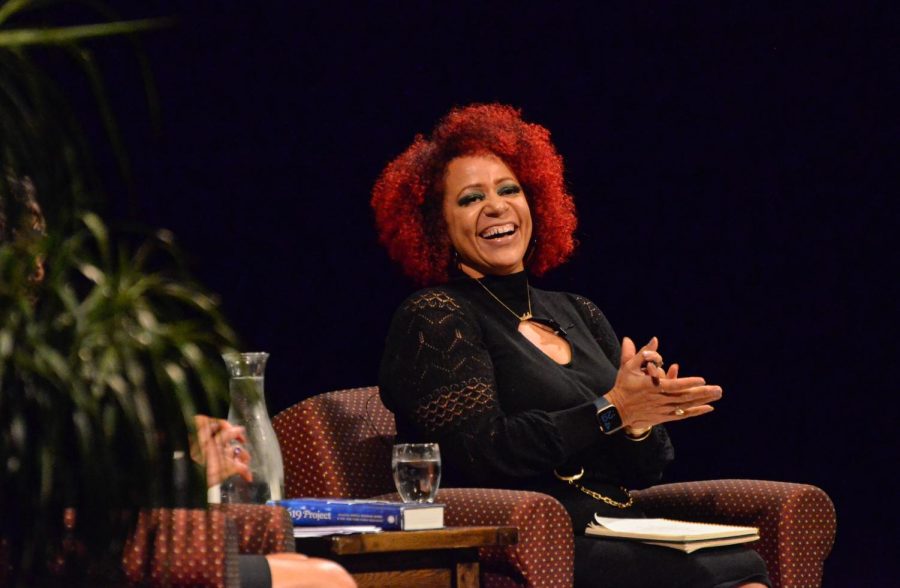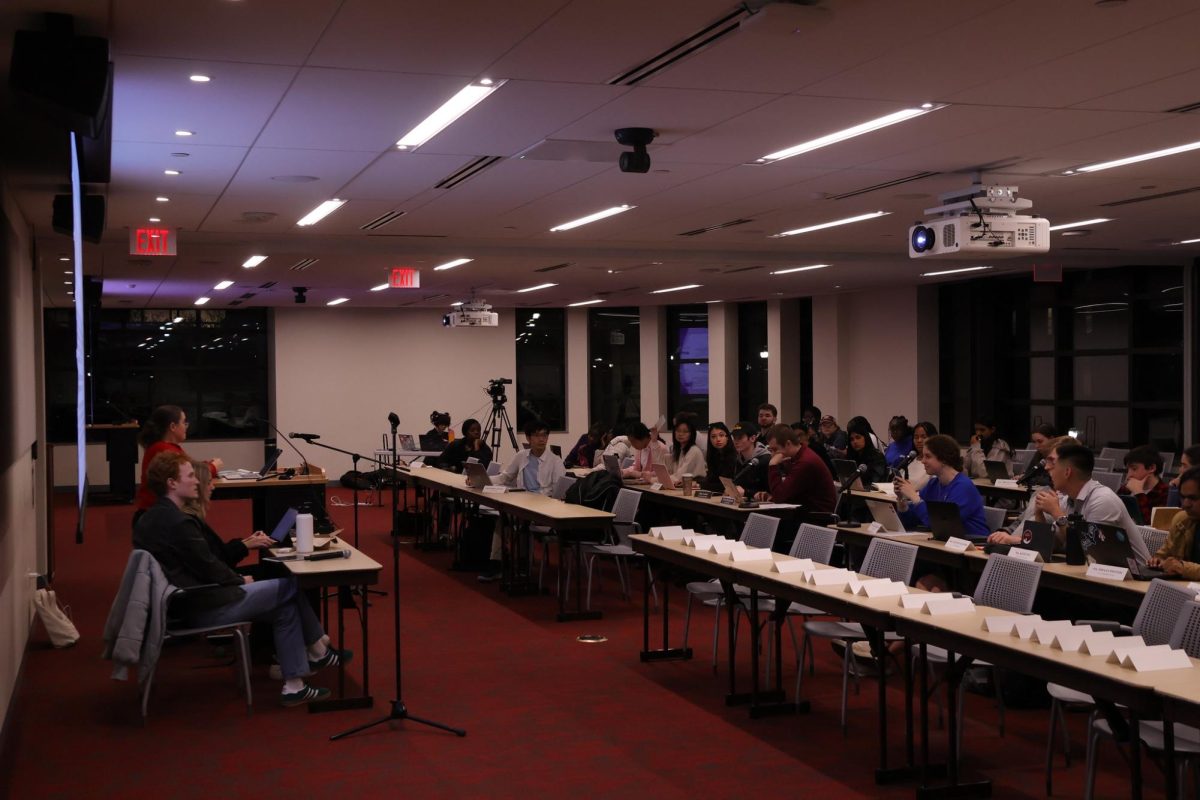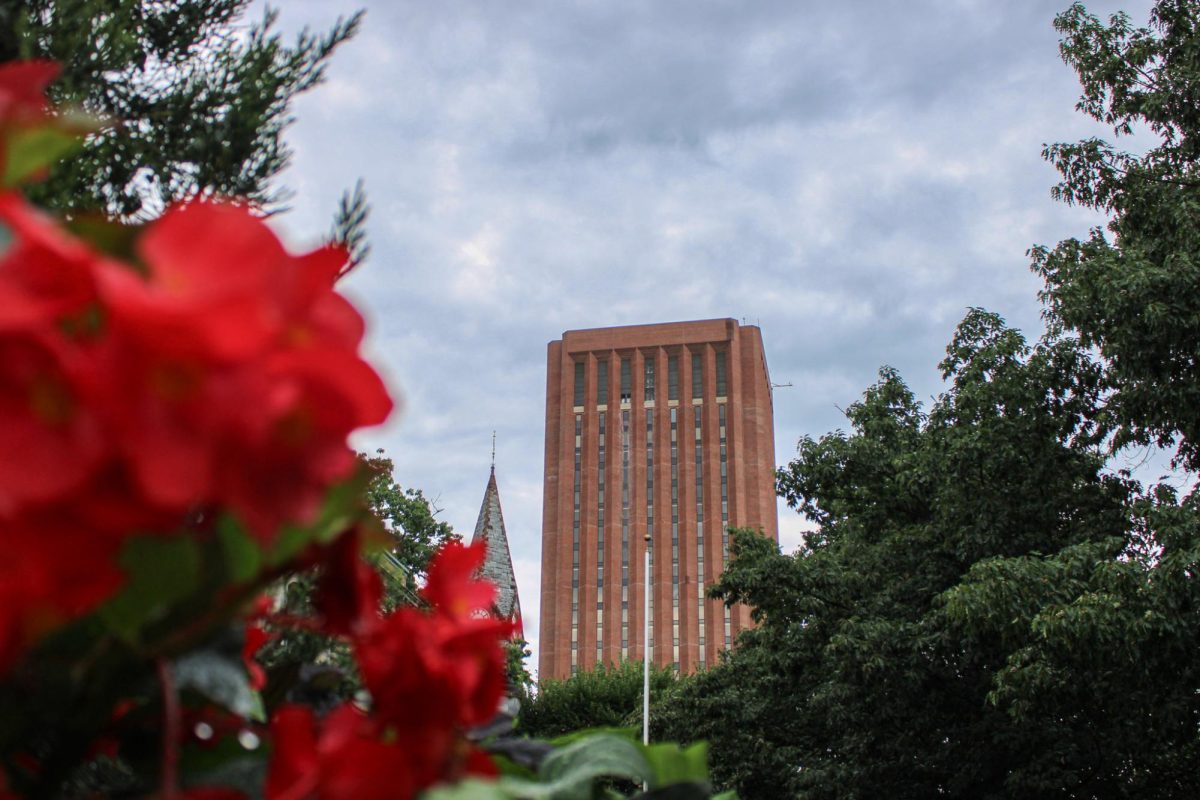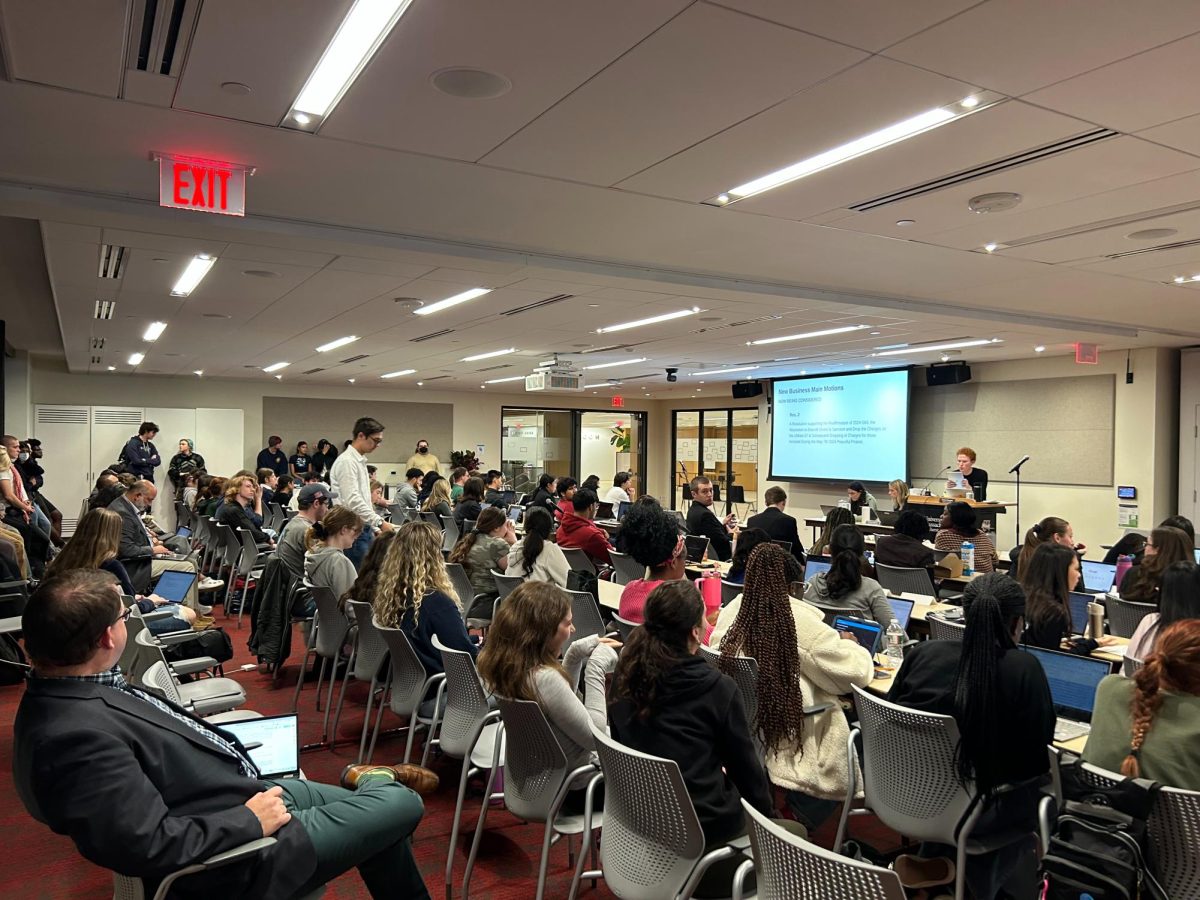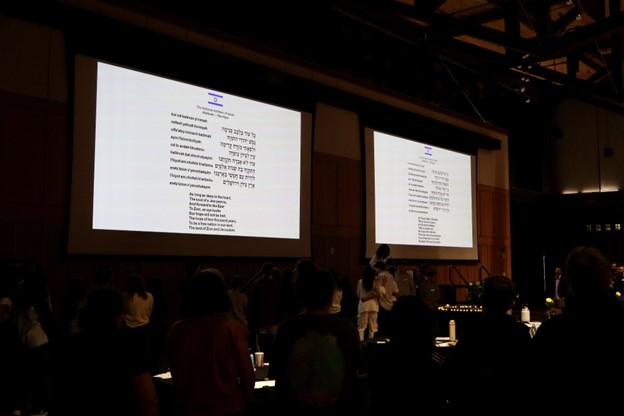Nikole Hannah-Jones, Pulitzer Prize winning investigative journalist, visited the University of Massachusetts Amherst on Friday Sept. 23. Hannah-Jones and was greeted by a wave of applause from a packed auditorium at the Bromery Center for the Arts. Hannah-Jones spoke about her research for the “1619 Project” and the legacy of slavery in the U.S. politics, culture and economy.
The “1619 Project” is a series of essays written by prominent Black scholars and writers including Michelle Alexander, Barry Jenkins and Ibram X. Kendi. The New York Times project was published in commemoration of the 400th anniversary of the beginning of slavery in America.
Hannah-Jones has previously been awarded a MacArthur Fellowship, a Peabody Award and two George Polk Awards for her reporting. She is the co-founder of the Ida B. Wells Society for Investigative Reporting, which works to increase the number of journalists of color in the field. Hannah-Jones also established the Center for Journalism and Democracy at Howard University and the 1619 Freedom School, an afterschool literacy program in her hometown of Waterloo, Iowa. Hannah-Jones holds a master’s degree in mass communication from the University of North Carolina Chapel Hill and bachelor’s degree in history and African-American studies from the University of Notre Dame.
The event began with a speech from Chancellor Kumble R. Subbaswamy. He gave an introduction of Hannah-Jones and how her career at the New York Times has made her, “one of the most influential voices of our time.”
Dr. Barbara Krauthamer, dean of the College of the Humanities and Fine Arts and professor of history, moderated the conversation. Krauthamer specializes in the history of African-American slavery and emancipation in the United States.
In conversation with the Massachusetts Daily Collegian, Krauthamer said Hannah-Jones, “has brought to the New York Times a different approach that centers Black people and the social and economic and political conditions of Black people’s lives in America.”
Hannah-Jones’ project on Black history began in 2019 as a pitch to her editor at “The New York Times.” She worried that the public would forget the 400th anniversary of the beginning of American slavery and treat it like any other day.
“I just knew that like most days, most big moments in Black American history was likely going to pass with very little recognition or acknowledgement, that there would probably be some news articles about it,” said Hannah-Jones. “But there wouldn’t be this kind of large rush with ‘what does it mean that slavery is one of the oldest institutions in what became the United States?’”
She wanted to take a different approach in how this history was written and explain how society today has been shaped in “surprising ways.” Hannah-Jones felt that this story needed a different format apart from a book or one article. She and her editor decided to publish within the New York Times Magazine.
“I wanted to produce something that was not just a forced acknowledgement of that date, but really [grappled] with the way that that history has shaped our society and continues to shape our society,” said Hannah-Jones.
Hannah-Jones was asked if she was surprised by the negative reactions from people who are right-leaning, as well as the general reactions from the public. “There’s a difference between critique and trying to discredit,” said Hannah-Jones, “There’s a difference between saying we don’t agree with the framing, we think [there wasn’t] enough evidence to back this particular argument … I have no problem with that.”
She said that she took issue with those who tried to discredit the project and say that it was “invalid.” Hannah-Jones said some of the feedback which she and the other writers of the project had received accused them of, “not knowing what they’re talking about,” and that, “it should not be in the American school.”
When asked about the controversy that arose over teaching the “1619 Project” in schools, Hannah-Jones defended critical race theory in the education system by saying, “All [critical race theory] seeks to do is question how some 55-60 years after the Civil Rights Movement ends discrimination by law, why are Black people still on the bottom of everything we measure.”
Hannah-Jones also spoke about the intersection between racial inequality and the American capitalist economy. “I’m not trying to repair capitalism, but I am trying to repair the wealth gap that capitalism created,” she said.
“There’s a great [moral] debt, but also financial debt in this country,” Hannah-Jones said in support of reparations. “We have rights, we don’t have economic wealth, which means you don’t have to have a law that keeps us out of your neighborhood, you just build the house. And we can’t afford to move into it.”
Kathy Roberts Forde, a journalism professor and historian of American journalism at UMass, attended the event because she had followed Hannah-Jones’ work for a long time and has also taught it in classes. “She has brought to the forefront of American consciousness … the history of race in our country and particularly of the Black experience,” said Forde.
Forde said she is interested in journalism becoming more diverse and she agreed with Hannah-Jones’ belief that we need multiracial journalism if society is going to succeed in building a multiracial democracy. “I found this especially powerful,” Forde said.
Esme Link, junior French and Francophone studies major, found the talk to be eye-opening. “I like the piece about the wealth gap. I’ve never even thought about that, but it answers so much,” she said.
Link’s mother, Amy Link, has also been a longtime fan of Hannah-Jones’ work, and drove two hours up to UMass to attend this event. “[I’m] hopeful to see a whole room of people, of young students here, listening to what she has to say. There’s a lot of power in what she says, and truth,” she said.
Hannah-Jones ended the conversation on an optimistic note. “Nothing about our society is inevitable. We have power and we can build a country that we want.”
Kami Nguyen can be reached at [email protected] and followed on Twitter @kamihnguyen.
Liesel Nygard can be reached at [email protected] and followed on Twitter @LieselNygard.

